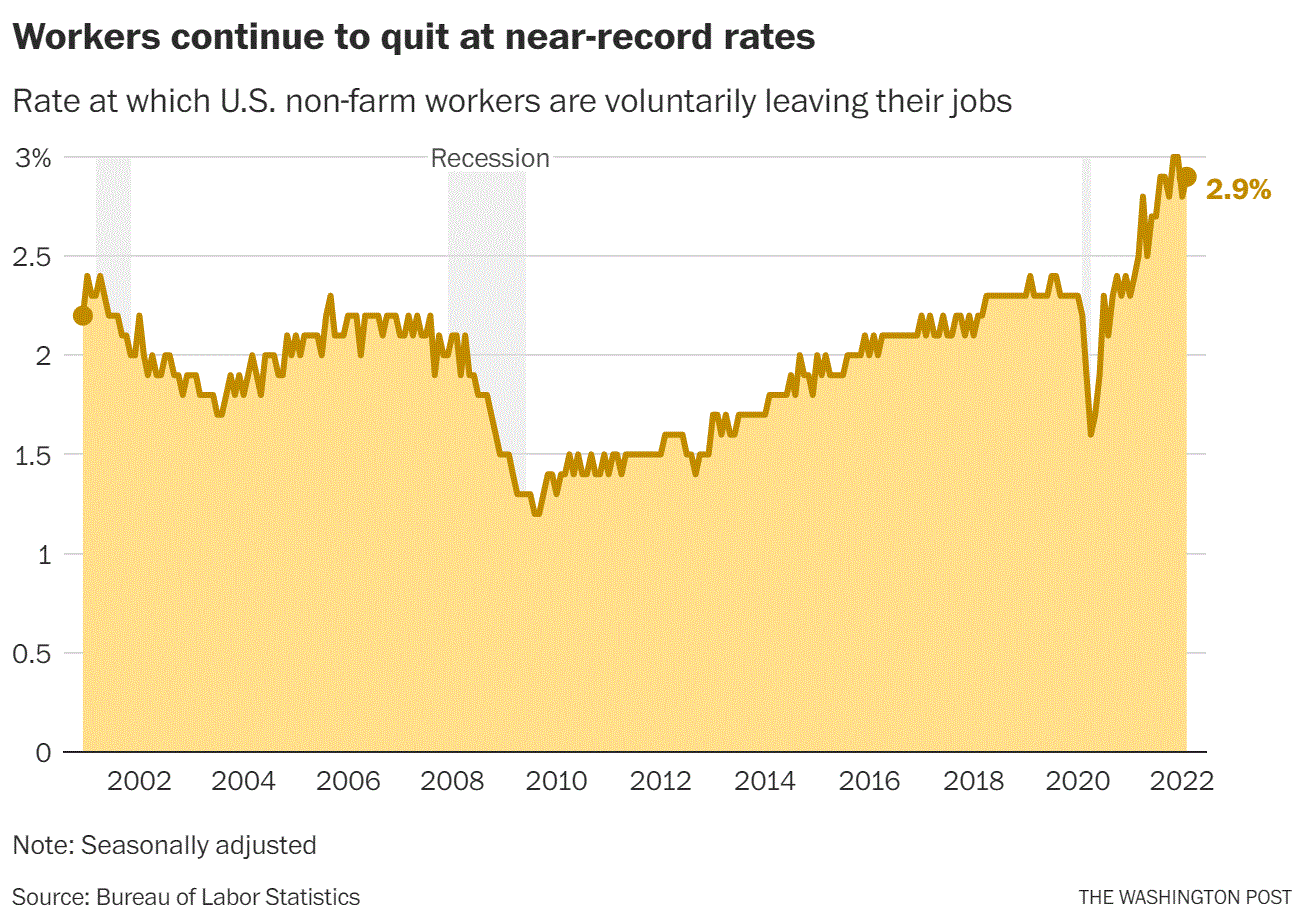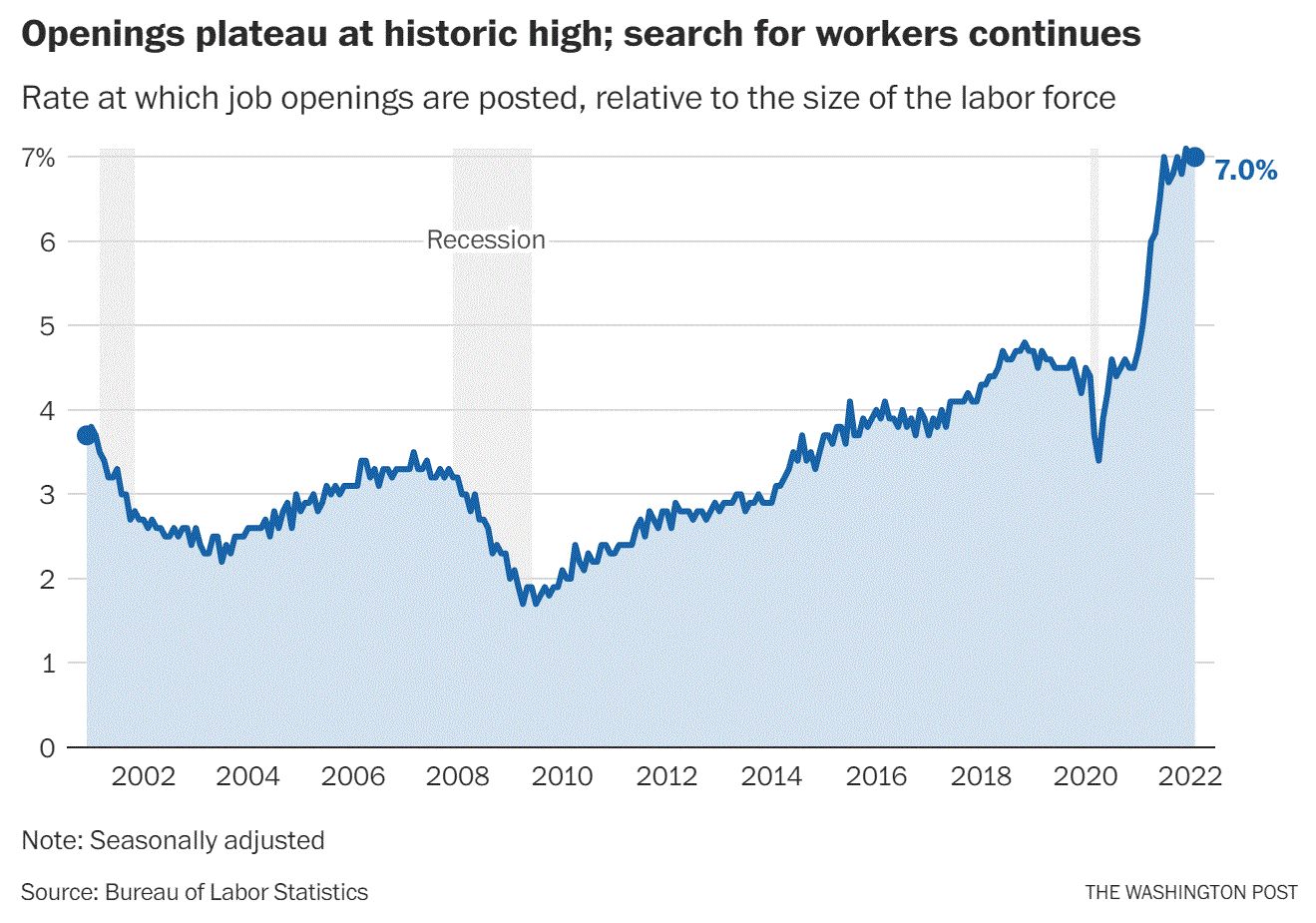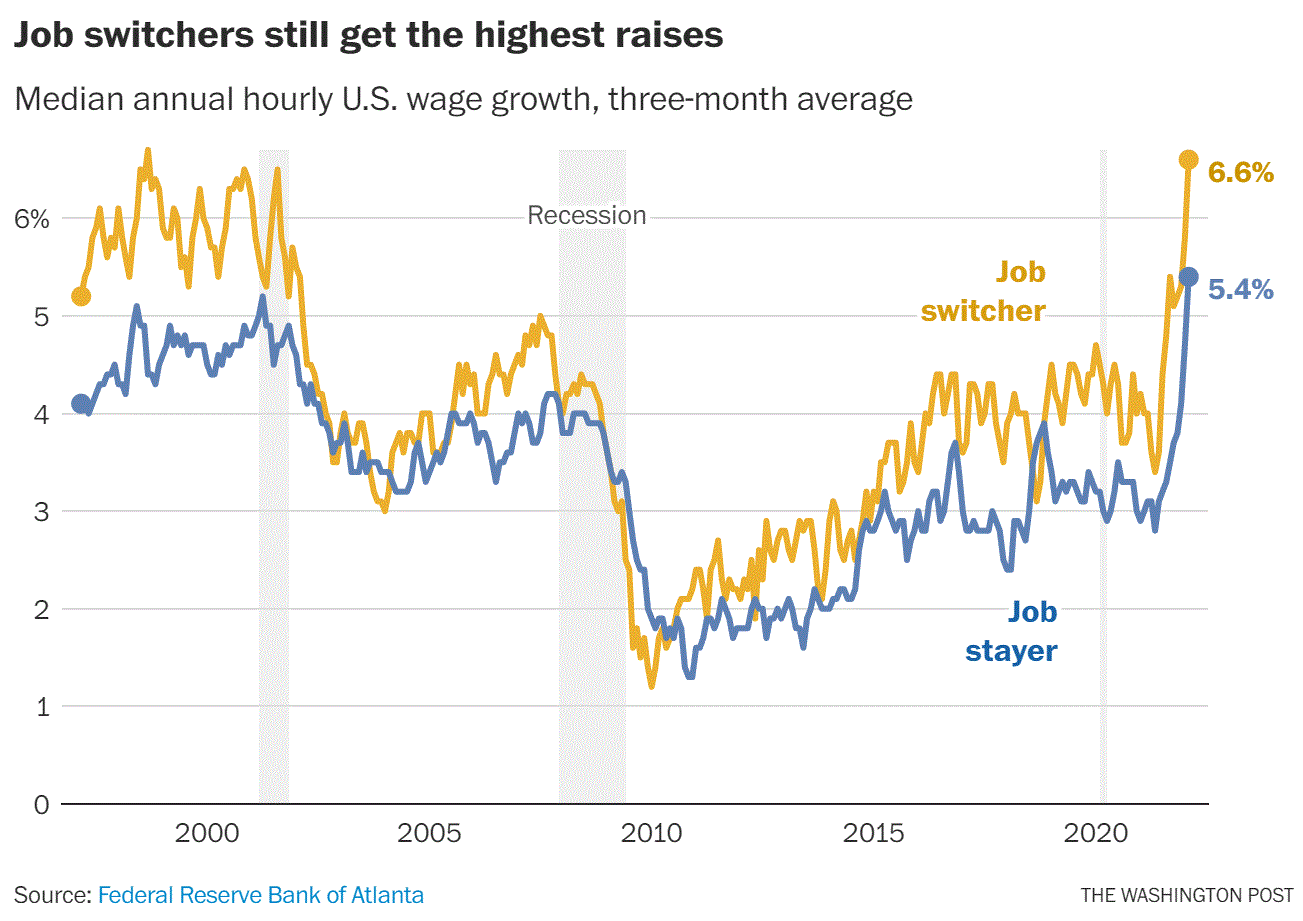4.4 million in U.S. quit or changed jobs in February as turnover remained high
Demand for workers remains brisk, with employers reporting 11.3 million job openings last month
By Abha Bhattarai
March 29, 2022 - Washington Post
Americans continued to switch jobs at near-record rates in February, with 4.4 million workers leaving their positions in a historically tight labor market.
Employers hired 6.7 million people that month while reporting 11.3 million job openings, according to a report released Tuesday by the Bureau of Labor Statistics.
“We continue to have an unusual amount of churn in the job market,” said Erica Groshen, an economist at Cornell University and a former head of the Bureau of Labor Statistics. “We were all just holding our breaths during the worst parts of the pandemic, but now that’s changing.”

The latest report builds on months of economic momentum, with U.S. employers adding a record 7 million jobs over the past year. The economy created 678,000 positions in February alone, sending the unemployment rate to a pandemic low of 3.8 percent, Labor Department data shows.
That strong reading ・which added to the Federal Reserve’s resolve to begin increasing interest rates this month ・also has given new leverage to workers as they look for more-favorable working conditions and higher pay.

“The labor market is still raring to go, with strong employer demand and increased worker mobility,” said Daniel Zhao, a senior economist at the job review site Glassdoor. “We’re still seeing very strong job openings and quits, as well as layoffs at record lows.”
Americans who switched jobs saw a typical raise of 6.6 percent in the past year, while those who stayed saw their pay go up 5.4 percent, according to a widely watched measure of wage growth from the Federal Reserve Bank of Atlanta. Both numbers, reported as three-month averages, are at or near the highest rates since the late 1990s.

But inflation has eroded many of those wage gains and contributed to growing unease about the economy. A growing portion of Americans - 21 percent - cite rising prices as the country’s top problem, up from about 10 percent in February, according to a new Gallup poll.
The poll also suggests concerns about costs are overriding positive news on unemployment. A 75 percent majority says the economy is getting worse, up from 70 percent in February. “Unemployment” ranks at the bottom of a list of national concerns, with 32 percent saying they worry “a great deal” about it, but 59 percent are highly worried about inflation, and 58 percent are worried about the economy in general.
Those concerns probably are contributing to increased job-hopping among Americans who are seeking to take advantage of the tight labor market.
Jeff Gabbard quit his IT job in Indianapolis in February, thinking it would take about three months to find a new position. It took less than two weeks.
His job search was a far cry from earlier in the pandemic, when Gabbard was unemployed for over a year. This time around, he says, there were many more openings that offered perks such as the option to work from home.
“Being able to work remotely really opened things up for me, because, all of a sudden, I wasn’t just limited to Indianapolis,” said Gabbard, 57. “I could take a job anywhere.”
Interest in remote positions has been rising steadily among job seekers as they look for ways to improve their working conditions, according to Zhao of Glassdoor.
“We are starting to see more companies offering remote and hybrid options as they recognize they need to be more flexible to actually compete for talent,” he said. “Workers are using this to take advantage of newfound leverage to negotiate conditions that are beneficial for them.”
Joshua Waight quit his job at a 99 cent store in Sonora, Calif., in February, to stay home with his 8-month-old son. He’d spent the previous year making minimum wage on the early-morning stocking shift but grew frustrated by the limited hours. With his wife starting a new job at a nearby casino, it seemed like a good time to leave the workforce.
“I felt like my career wasn’t going anywhere, and I wanted to be home for my son,” the 34-year-old said. “Working through the pandemic was difficult.”


